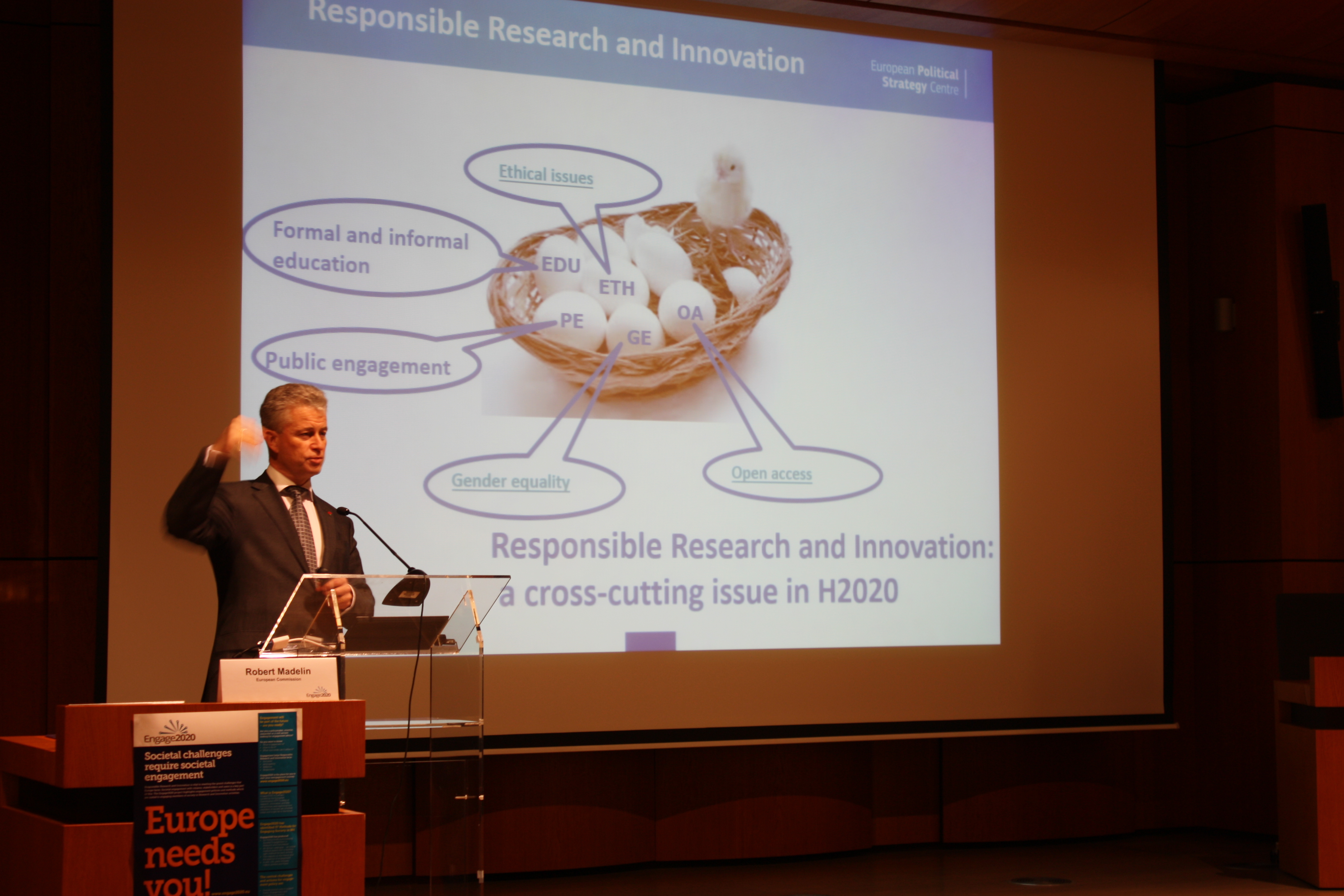Engaging with societal actors and civil society is a key element of Responsible Research and Innovation (RRI) and in the efforts of doing science with and for society. But for some involved in research and innovation, public engagement is still a relatively new concept. So what can be done to increase societal engagement and what are the challenges?

Engage2020 is an EU-funded project that has been looking at ways to increase the use of engagement methods and policies by mapping current practices across Europe to identify trends, needs and barriers to societal engagement.
The project has found a growing interest at the European level to engage citizens in research and innovation (R&I) activities but also many challenges that make it difficult for actors, such as citizens, CSOs (Civil Society Organisations) and users to take part in the process.
Policy options for embedding public engagement
Three key areas for increasing public engagement in R&I have been identified by the Engage2020 consortium – mainstreaming, capacity building and engagement methods development – for which they looked at a number of policy options. These include ways to embed public engagement, for example, through funding and incentives, such as reward structures for involved actors; introducing rules and regulations to make public engagement mandatory; encouraging institutions to embrace a culture of engagement; and providing new infrastructure and platforms at both EU and the national level. Engage2020 also identified a clear need for more training to improve the skills of researchers, engagement practitioners, funders and public research authorities to undertake public engagement activity as well as including it in the curricula of higher education and secondary schools.
Tools to support researchers
The project has also been mapping proven methods and tools for engaging the public in R&I processes from around the world, which they have collated into an online tool. Designed to support researchers or policy-makers wanting to conduct inclusive research, the Action Catalogue www.actioncatalogue.eu highlights the most appropriate methods based on the requirements selected and includes both digital and face-to-face activities. For those new to engagement, Engage2020 has also produced an interactive e-book providing the background for understanding the rational, needs and principles of engagement practices.
Science shops, which undertake research for civil society, are also highlighted as an effective public engagement mechanism that link research institutions with civil society to facilitate societal engagement.
Next steps
As the consortium acknowledged at its recent final conference in Brussels, lots of tools, resources and recommendations on how to deliver RRI now exist but the next step, and real challenge, is actual implementation. This is not just about embedding public engagement in research institutions and policy-making but also making sure that citizens and CSOs understand the importance of their involvement, in order to turn the vision of RRI into a reality.
If you want to find out more visit the Engage2020 website. The project is also running three webinars in November to share their key findings.

